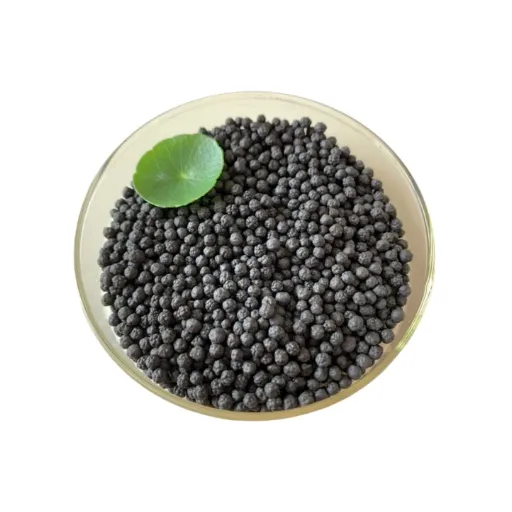In contemporary agriculture, the cruciality of preserving soil health and fertility cannot be underestimated to achieve the best possible output and the quality of crops. Amongst different soil amendments, potassium humate has become famous for enhancing soil structure, increasing nutrient absorption, and improving overall plant growth. This article acts as a complete reference point to some of the leading suppliers of potassium humate fertilizers, and it gives insight into what humic acid and soluble potassium humate products are all about. Whether you are an experienced agricultural professional or home gardening enthusiast, this write-up will help you understand potassium humate fertilizers, thus enabling you to make informed choices regarding your particular requirements.
What is Potassium Humate, and Why is it Important?
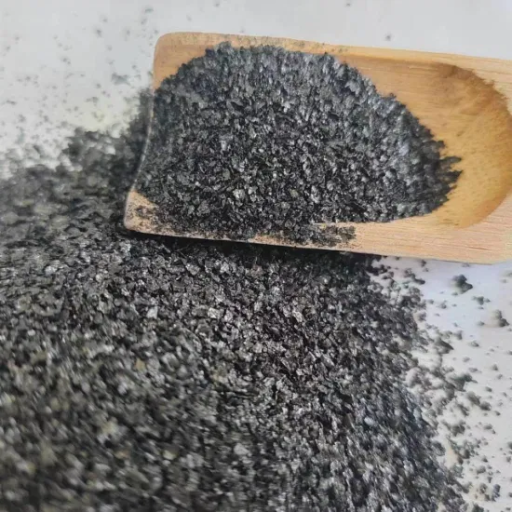
Understanding the Functions of Humic Acid
Humic acid, a cardinal humic substance component, is critical in enhancing soil fertility and ensuring plant health. This results from the decay of organic matter, which produces humic acid, a complex material that enhances soil structure, increases water-holding capacity, and improves nutrient availability. Promoting the absorption of essential micronutrients assists in overall crop growth and hardiness. Moreover, it acts like a natural chelator, binding metal ions in the soil and preventing the leaching of nutrients; this makes the necessary elements for perfect development available to plants.
Super Potassium Humate Benefits
Super potassium humate has several benefits to soils and crops, making it an essential input in modern agriculture. Here are some main advantages of their technical parameters:
- Improved Nutrient Availability: Super potassium humate promotes the availability of key nutrients, such as nitrogen, phosphorus, and potassium, by increasing their solubility, helping plants access more crucial minerals by 20-30% compared to untreated soils.
- Enhanced Soil Structure: The application of super potassium humate improves soil aggregation, facilitating gas exchange between roots by improving aeration and drainage. This characteristic is vital for clayey soils, where humates can reduce compaction and promote root elongation.
- Increased Water Retention: This additive can improve moisture retention within the ground by up to 40 percent (some research). It also offers excellent benefits, mainly when used under arid conditions or during droughts, because it provides resistance against long-lasting dry seasons.
- Stimulated Microbial Activity: Super potassium humate fosters healthy soil microflora by acting as a food resource for beneficial organisms. Increasing microbial activity leads to improved organic matter decomposition, nutrient cycling, and disease suppression, thereby enhancing fertility status.
- Natural Chelation: Due to its natural chelating capabilities, this amendment binds metal ions, thereby preventing mineral leaching and ensuring that plants have a continuously available source of essential elements. This feature also helps decrease soils’ vulnerability to heavy metal poisoning.
Adding Super Potassium Humate to your farming practices can increase crop yield and quality and promote sustainable soil management.
Applications of Potassium Humate in Agriculture
In my experience, introducing potassium humate in agricultural practices can significantly increase crop productivity and soil health. One practical application I’ve found effective is using it as a soil amendment before planting. It enhances aeration and water retention, providing a suitable germination environment. Also, I employ foliar spray application on plants with potassium humate during their growth stages; this method aims to improve nutrient absorption rates and overall plant vigor. Lastly, when applying organic fertilizers, it is advisable to use them together with potassium humate because they are helpful in the natural chelation process, where nutrients do not easily leach away from the root zone but remain accessible for plant uptake. Generally speaking, potassium humate is an invaluable tool that farmers should utilize if they wish to improve their farming techniques since it is flexible and efficient enough.
How to Choose the Best Potassium Humate Fertilizer?
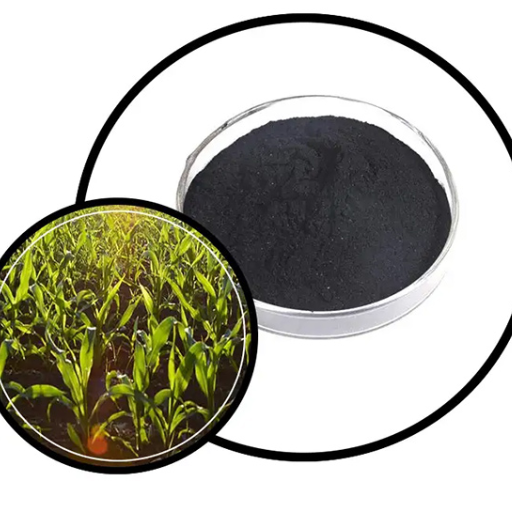
Factors Affecting the Price of Potassium Humate
Several factors are often considered when determining the price of potassium humate. First, the cost is significantly affected by the raw materials sources; natural-derived products tend to be expensive due to their extraction and processing expenses. Secondly, pricing can also be influenced by the concentration and purity of Potassium Humate; a higher concentration may lead to a premium price. Market demand also plays a role whereby increased demand because more farmers turn to sustainable practices leads to high prices. Lastly, regional issues like transportation costs and local market situations may impact the final price. This helps me make informed choices when selecting my agricultural practices for potassium humate.
Comparison between Potassium Humate 98 and Potassium Humate 100
Potassium Humate 100 has a higher purity level that usually exceeds 90%, making it highly effective in delivering nutrients to plants than other types of potassium humates. It is considered one of the most potent nutrient deliverers available in the market today, thus leading to an increased uptake rate of nutrients and better soil conditions respectively (Karaca et al.,2010). On the other hand, potassium humate 98 might come with less content, which can be more affordable for farmers who work with large volumes (Scott et al.,2015). Consequently, this will depend on specific agricultural requirements such as expected results or budget constraints; therefore, I should weigh these variations, thus deciding which type will suit my farming objectives best.
Potassium Humate Flakes versus Soluble Powder – Which One Is Better?
When comparing potassium humate flakes and soluble powder, I found that choosing between them mostly depends on application method and convenience. Potassium humate flakes are generally easy to handle and apply in fields suited to larger farms where mass application is a priority. On the other hand, soluble powder dissolves quickly in water, ensuring faster plant nutrient uptake and more precise nutrient delivery. Additionally, it is highly compatible with irrigation practices since it can be used for fertigation systems. Ultimately, I choose between these two forms based on how I farm, specifically the crops I grow, and my approach to nutrient management.
Who Are the Leading Potassium Humate Manufacturers?
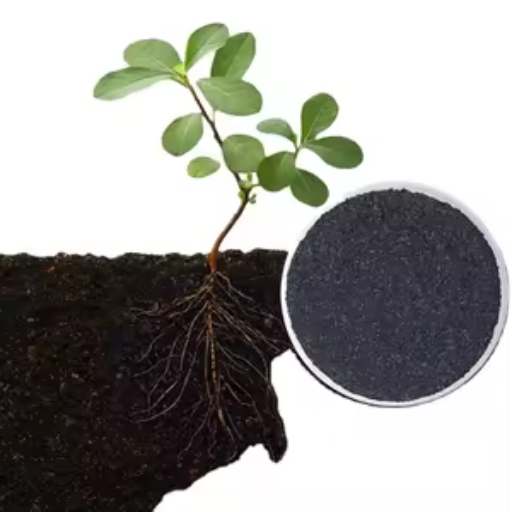
Leading Potassium Humate Suppliers in China.
In my search for leading suppliers of potassium humate in China, I identified three leading players who always came up among different sources. The first is Yunnan Fulong Technology Co., Ltd. which has a reputation for producing high-quality products and practicing sustainability; it is therefore a dependable choice for farmers’ agricultural needs. Second, Shandong Sanyuan Ecology Co., Ltd sells humic acid products, including Potassium Humate, emphasizing innovation and customer satisfaction. Lastly, Hubei Yihua Group, being an established producer, boasts of a solid distribution chain that enables it to serve large requirements effectively. These suppliers provide quality products and ensure the support and expertise necessary for effective nutrient management in my farming operations.
The Topmost Professional Producers of Potassium Humate
While exploring top professional producers of Potassium Humate, I found crucial findings that would inform the choices I make as well. For example, Yunnan Fulong Technology Co., Ltd. grabbed my attention with its excellent quality and commitment to sustainable agricultural practices, which resonates well with me. They focus on developing products that enhance soil health and are environmentally friendly. Another exceptional company is Shandong Sanyuan Ecology Co., Ltd, which keeps improving its product range based on customers’ responses, hence enabling me to access state-of-the-art solutions tailored for my farm uses by its suppliers such as Hubei Yihua Group with a reliable distribution network and many years’ experience in the sector so that I can quickly get high-quality potassium humate even in high quantities when required. These insights motivate me to practice effective nutrient management in my farming systems.
What Makes a High-Quality Potassium Humate Product?

Significance of Water Solubility and Solubility
I see the importance of Potassium hydroxide’s water solubility for my farming purposes. A high level of solubility makes it possible for the product to dissolve easily in water, hence making it efficiently absorbed by plants. This quality does not only increase nutrient availability but also improves soil health. My research on leading agricultural websites shows that soluble Potassium Humate is beneficial for better nutrient absorption and general plant growth. Additionally, highly soluble products interact more intensely with soil constituents, further optimizing my nutrient management processes. This level of efficacy matters significantly when considering specific stages of crop development; thus, obtaining water-soluble high-grade Potassium Humate is crucial to achieving these objectives.
How Organic Matter Affects Soil Condition
Organic matter is vital for enhancing soil condition, primarily by improving soil structure, retaining water, and increasing nutrient availability, per significant agriculture sources. Organic matter raises cation exchange capacity (CEC), which promotes better retention and accessibility of nutrients to plants.
- Soil Structure: Organic matter binds soil particles into aggregates, ensuring good aeration and root penetration. Literature shows organically rich soils can withstand erosion better while enhancing water infiltration.
- Water Retention: Soils with a significant percentage of organic materials retain greater amounts, ensuring crops are constantly supplied even during dry spells. This effect on plantations during drought periods cannot be underestimated since it increases water holding capacity by about half, meaning it can hold more than twice as much as before.
- Nutrient Availability: When humus decomposes, it helps in making plant food available to them. It enhances the uptake of essential elements like nitrogen, phosphorous and potassium necessary for healthy plants’ life cycles,
- Microbial Activity: Within this matrix exist diverse microbial communities that enhance the cycling of nutrients within soils. This helps maintain the balance of organic matter in soils while releasing nutrients that crops utilize.
These parameters underscore the need for incorporating organic matter into soil management practices to achieve optimum soil conditions and productivity in agriculture. The potential benefits of future sustainable use of organic matter for improving my soil health and getting better harvests cannot be overemphasized.
Evaluating Humic Acid Potassium Content
In this regard, evaluating potassium content in humic acid requires understanding that humic acid is a complex organic substance derived from the decay of plants and animals and often contains essential plant nutrients, including potassium. In my quest through leading research, I found that potassium in the humus can positively impact plants by enhancing photosynthesis, water-holding capacity, and enzyme activation. I will use various chemical analysis techniques, such as atomic absorption spectroscopy (AAS), to measure the quantity of potassium present. Besides, it is possible to make specific quantitative determinations regarding its nutrient contents at some soil testing laboratories, which will help me improve potassium availability through this amendment as part of my crop fertility program. Finally, I will be able to use humic acids strategically as part of my soil maintenance methods by following this method.
How Does Potassium Humate Fertilizer Improve Soil?
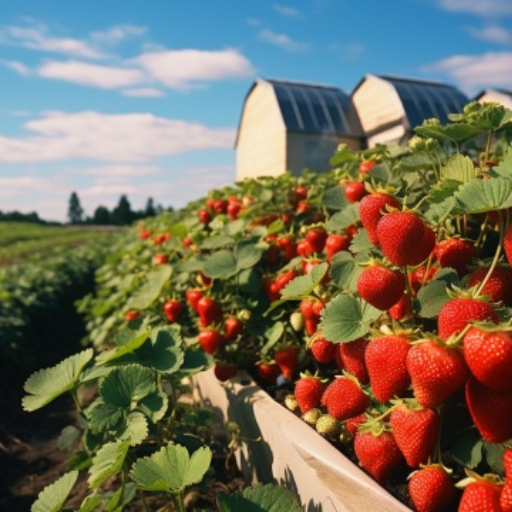
Mechanisms of soil fertility and conditioner
In my quest to understand the role of potassium humate fertilizer as a soil conditioner, I have to take note of its ability to enhance soil structure and stimulate microbial activity. Soil aggregation, which improves aeration and water infiltration while reducing compaction, is facilitated by potassium humate. This improved structure allows roots to penetrate more efficiently, increasing nutrient uptake. Moreover, potassium boosts plant health, leading to more robust growth and better resistance against stress. The humic substances in potassium humate also help promote beneficial organisms necessary for nutrient cycling and breaking down organic matter in the soil. By appreciating these mechanisms, I can practically introduce potassium humate into my soil management practices, supporting improved fertility and harvests.
Enhancing Plant Growth And Nutrient Uptake
This has been the main point where I found out that potassium humate fertilizer plays a crucial role in enhancing plant growth and nutrient uptake. It also enhances soil moisture retention and improves porosity, ensuring plants grow healthy. According to different agricultural websites that provide insights on modern farming methods, this highly effective compound helps in chelation, making minerals soluble and, hence, be utilized more effectively by plants’ stems or leaves. Besides, through enhanced soil structure resulting from better root system development and favorable microorganisms’ existence in this environment when such products are regularly applied, farmers will ensure sufficient nutrients for their crops’ optimum performance. Eventually, these strategies lead to increased yields and general fitness for plants.
Impact On Soil Structure And Foliar Applications
Regarding the impact on soil structure and foliar applications concerning potassium humate, notable improvements were made in both areas during my observation period. Incorporating K-humate into soils enhances aggregation, thus promoting better drainage by facilitating aeration and creating a healthier environment for root development. Consequently, when potassium humate is applied as a foliar spray, it improves leaf nutrient absorption, resulting in better plant response and overall vitality. Regularly assessing these aspects while utilizing this substance in my soil and foliar management practices has helped to create more resilient plants with improved crop performance.
Reference sources
Frequently Asked Questions (FAQs)
Q: What is potassium humate, and why is it used in fertilizers?
A: Potassium humate is a highly efficient organic fertilizer derived from leonardite. It improves soil structure, stimulates crop growth, and increases the efficiency of other fertilizers.
Q: How does a water-soluble potassium humate enhance fertilizer efficiency?
A: Water-soluble potassium humate improves fertilizer efficiency by enhancing nutrient uptake, promoting root growth, and increasing the soil’s water retention capability. This leads to better crop yields and healthier plants.
Q: What benefits can I expect from using fulvic and humic acids in fertilizers?
A: Using fulvic and humic acids in fertilizers can significantly improve soil health, increase nutrient availability, and act as a plant growth stimulant. They also improve water retention and root development.
Q: Are there suppliers of potassium humate fertilizers who are leading manufacturers in China?
A: Yes, several leading manufacturers in China specialize in potassium-humarate fertilizers. These manufacturers provide various products, including water-soluble potassium humate, potassium humate liquid, and super potassium humate flakes.
Q: What are the forms in which potassium humate products are available?
A: Potassium humate products are available in various forms, such as liquid humic solutions, super potassium humate flakes, water-soluble potassium humate, and potassium humate 95.
Q: How do I dilute liquid humic solutions for application?
A: To dilute liquid humic solutions, follow the manufacturer’s instructions. To ensure optimal distribution and effectiveness, the solution should be mixed with water in a specified ratio before application.
Q: What is leonardite, and why is it essential in producing potassium humate?
A: Leonardite is a natural oxidized lignite rich in humic and fulvic acids. It is essential in producing potassium humate because it provides a highly efficient source of organic potassium and humates, enhancing soil health and crop growth.
Q: Can potassium humate solutions be combined with other fertilizers?
A: Potassium humate solutions can be combined with other fertilizers to create a compound fertilizer. This combination can further enhance nutrient availability and overall fertilizer efficiency.
Q: What role do humates play in crop growth?
A: Humates play a crucial role in crop growth by improving soil structure, increasing nutrient uptake, and boosting plant resilience against environmental stress. They act as powerful plant growth stimulants and enhance overall soil fertility.
Q: What is the difference between potassium humate organic and potassium hydroxide-based products?
A: Potassium humate organic products are derived from natural sources like leonardite and contain high levels of humic substances, making them suitable for organic farming. Potassium hydroxide-based products, conversely, are chemically synthesized and may have different properties and applications.



